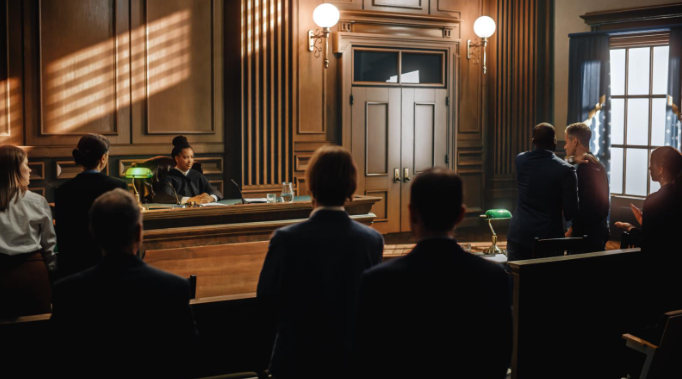After a serious car crash or another incident, you need answers and compensation for your injuries. To get the justice you deserve, you’ll need to identify who caused your injuries and the extent of their reckless behavior. This isn’t an easy job, but you have powerful legal tools that can help.
Discovery gives you access to evidence, testimony, and insight, all of which can help you investigate your personal injury case and legal claims. However, many victims aren’t prepared for the discovery process, which can feel invasive and time-consuming. In this article, the experienced injury lawyers at Crosley Law explain the discovery process, Texas’ court rules, and how they can impact your civil case.
What Is Discovery?
Discovery is a legal process where parties to a civil lawsuit share information about the incident, its causes, and your damages. The discovery process occurs after an injured victim files a lawsuit and the at-fault parties respond to their complaint. Discovery helps you understand your claim’s issues, assess the defendant’s legal arguments, and prepare your case for trial. Lawyers often describe discovery as a “formal” process because it’s overseen by the court.
During the process, you may share documents and information using a variety of discovery tools and tactics:
- Depositions: A formal interview where a witness answers the attorneys’ questions while under oath. A court reporter will record the responses and transcribe them into a written document.
- Requests for Admissions: You ask the opposing party to admit specific facts about the incident in writing.
- Production of Documents and Physical Evidence: You ask the defendant for specific documents and access to physical evidence. For example, in a product liability claim, you may want your expert witnesses to inspect the defective or dangerous item.
- Interrogatories: You send the other party a series of written questions that may help you understand the circumstances surrounding your accident and your legal claims.
Do I Have to Respond to the Insurance Company’s Discovery Requests?
The discovery process can feel overwhelming, especially if you’re unrepresented. You’ll get pages of interrogatories; you’ll also have to testify for hours during a deposition, and you may worry that you’re sharing information that could harm your personal injury case.
So, can you just ignore those written requests? It depends.
Can You Get Any Information You Want During Discovery?
In most cases, you can’t treat the discovery process like a fishing expedition and try to snag as much damaging information as possible about the other party. Instead, you can only demand information that is:
- Relevant: Does the requested information relate to your claim? If you’re just “fishing” for bad information about the other party, it might not be relevant.
- Isn’t Privileged: Some information is protected by privilege, and a party doesn’t need to disclose it. For example, discussions between a person and their lawyer are protected by attorney-client privilege.
If the insurance company and their litigation attorneys demand irrelevant or privileged information, you can deny their request.
Also, you can request information that would be inadmissible at court if it could help you uncover other, admissible evidence. For example, suppose a negligent delivery driver caused your car accident. Court rules typically won’t let you tell the jury about a reckless delivery driver’s past car wrecks (unless they bring it up at trial). However, your lawyer can ask about their driving record during discovery and investigate whether their employer should have known they were an unqualified driver.
To get the most out of discovery (and to protect yourself against insurance company tactics), it’s a good idea to work with an experienced injury lawyer from the very start of your case. Your attorney will build a discovery plan that aims to uncover as much admissible, relevant information as possible, and protects your privileged and confidential information.
What Happens if the Insurance Company Won’t Share Relevant Information During Discovery?
Discovery disputes are relatively common in personal injury claims. The insurance company may try to hide documents that would strengthen your case, or they may miss deadlines. You may think that certain information is privileged work product while the defense attorney disagrees. In these cases, a judge may have the final say.
Your attorney can file a motion to compel, where you ask the judge to force the other party to turn over the information you’ve requested.
How Long Does Discovery Take in a Lawsuit?
Typically, the judge will issue a scheduling order that sets discovery and other litigation deadlines. You should always do your best to complete discovery within the timelines set out in your case’s scheduling order.
“When you file a lawsuit in Texas, you must follow the strict rules and processes outlined in our state’s Rules of Civil Procedure. If you miss a step or a deadline, you may seriously damage your legal claims. So, it’s always a good idea to consult an experienced injury lawyer early on. An attorney can help you navigate your claim and comply with the procedural rules.”
When you file a lawsuit in Texas, you must follow the strict rules and processes outlined in our state’s Rules of Civil Procedure. If you miss a step or a deadline, you may seriously damage your legal claims. So, it’s always a good idea to consult an experienced injury lawyer early on. An attorney can help you navigate your claim and comply with the procedural rules.
Crosley Law: San Antonio’s Injury Attorneys
At Crosley Law, we help victims in San Antonio and throughout Texas get the compensation they deserve. We take a cutting-edge approach to injury law, combining medical knowledge, world-class experts, and aggressive tactics. If you need help uncovering the truth about who caused your injuries, Crosley Law wants to help. Contact us today to get a free, no-risk case evaluation.
To schedule your case evaluation, use our quick online form or call us at 210-LAW-3000 | 210-529-3000.
The content provided here is for informational purposes only and should not be construed as legal advice on any subject.









